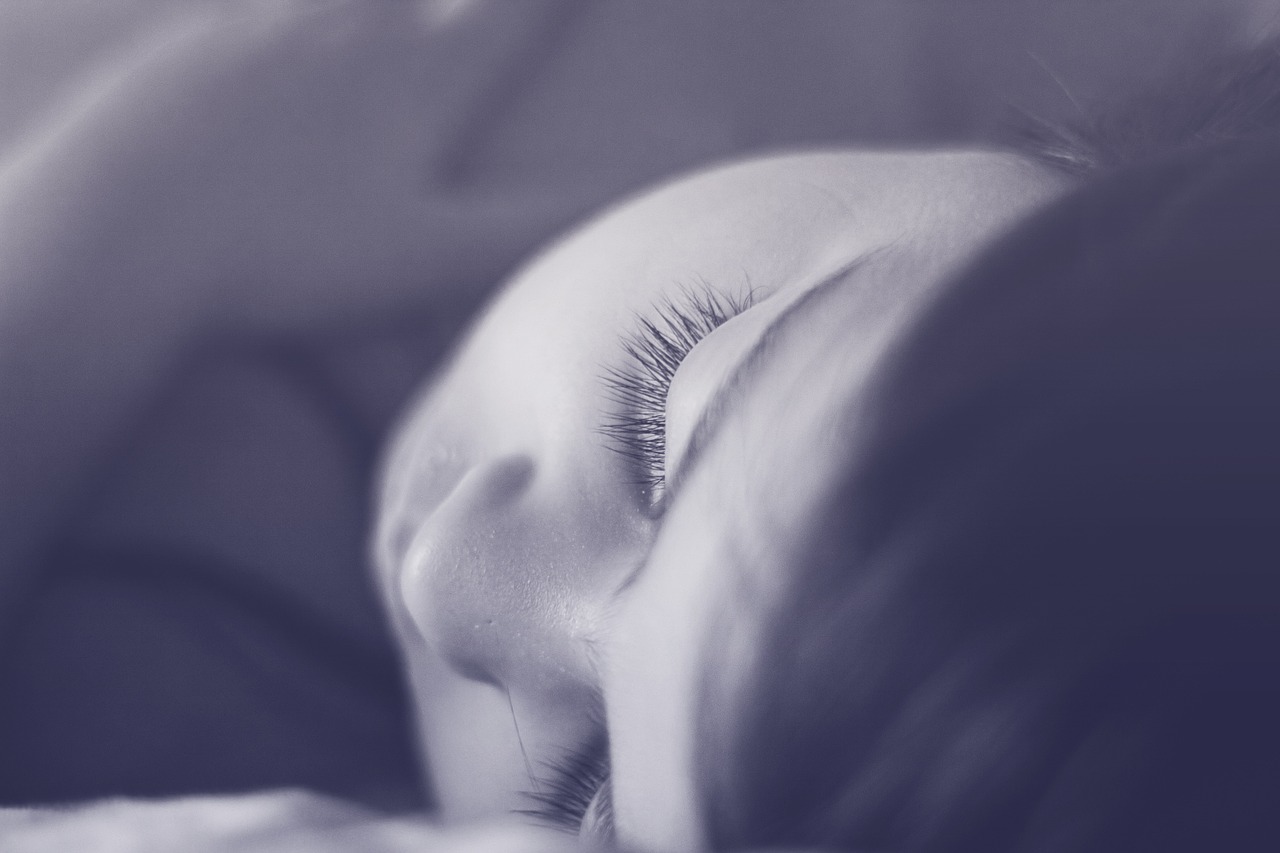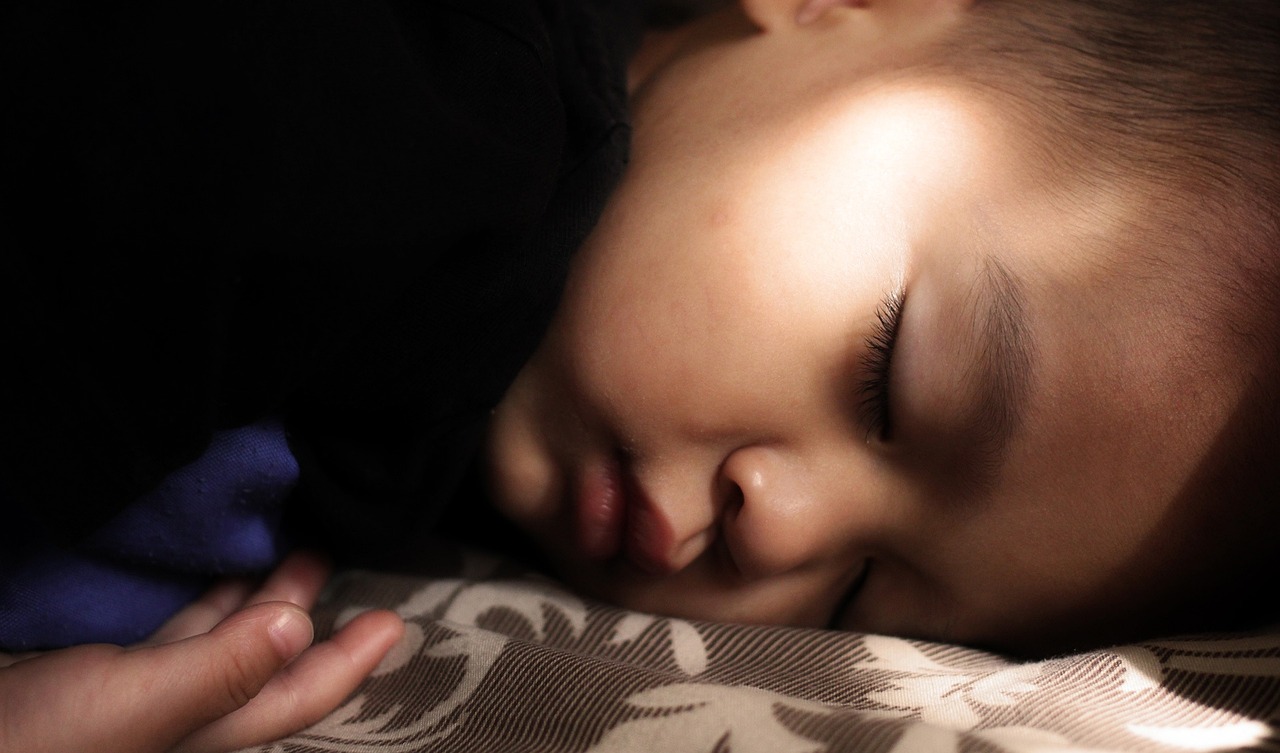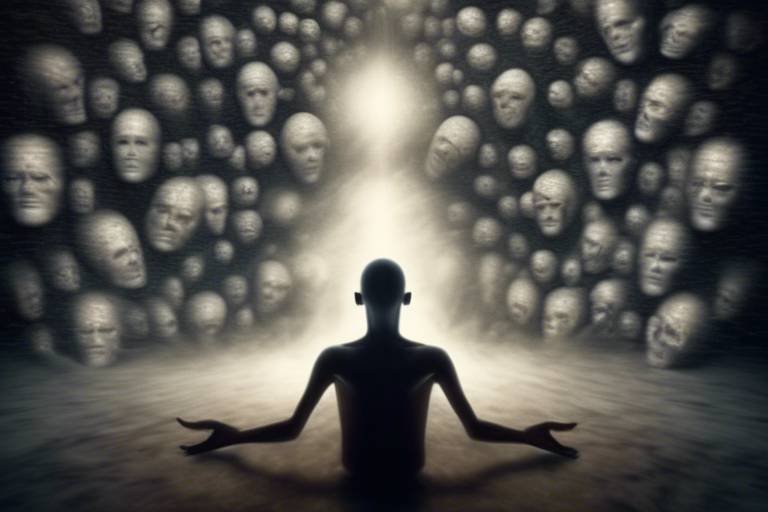The Mystery of Sleep and Dreams - How does it Affect Consciousness?
Have you ever woken up from a dream and thought, "What on earth was that all about?" or perhaps felt a lingering emotion from a dream that just wouldn’t shake off? Sleep and dreams are not just random occurrences; they are intricate phenomena that play a crucial role in shaping our consciousness. The relationship between sleep, dreams, and consciousness is a captivating subject that has puzzled scientists, philosophers, and even poets for centuries. What if I told you that our nightly escapades into the dream world could hold the key to understanding our deepest selves?
Sleep is more than just a time for our bodies to rest; it is a complex biological process that rejuvenates our mind and body. During sleep, our brain undergoes various stages, each contributing to our overall well-being. From light sleep to deep sleep and REM (Rapid Eye Movement) sleep, each phase serves a unique purpose. For instance, during REM sleep, our brains are highly active, and this is when most dreaming occurs. It’s like a nightly theater show where our subconscious plays out stories, fears, and desires. But why do we dream, and what significance do these dreams hold in our waking lives?
Dreams have been described as the "royal road to the unconscious" by the famous psychologist Sigmund Freud. He believed that they are a reflection of our innermost thoughts and feelings, often revealing what we might not be consciously aware of. Imagine your dream as a movie that highlights your unresolved issues, hidden desires, and emotional conflicts. On the flip side, modern cognitive theories suggest that dreams are essential for memory consolidation and problem-solving. They are like a mental workshop where our brain organizes and processes the day’s events, helping us to enhance our creativity and cope with challenges.
But what happens when we take control of our dreams? Enter lucid dreaming—a fascinating state where the dreamer becomes aware of their dreaming and can often manipulate the dream’s narrative. This unique experience opens the door to self-exploration and creative expression. Imagine being able to fly through the sky or confront your deepest fears, all while knowing it’s just a dream! Lucid dreaming can be empowering, offering insights into our psyche and even helping us tackle real-life problems.
As we dive deeper into the relationship between sleep, dreams, and consciousness, it becomes clear that sleep quality significantly impacts our mental health. Research shows that inadequate sleep can lead to heightened levels of anxiety, depression, and stress. In other words, poor sleep is like a dark cloud that can overshadow our mental well-being. Sleep disorders such as insomnia and sleep apnea can create a vicious cycle, where poor sleep exacerbates psychological issues, leading to a need for effective intervention.
So, how do we improve our sleep quality? This is where the concept of sleep hygiene comes into play. Practicing good sleep hygiene is essential for ensuring that we get the restful sleep our bodies crave. Simple changes, such as establishing a bedtime routine, creating a comfortable sleep environment, and limiting screen time before bed, can make a world of difference. Think of sleep hygiene as the foundation for a peaceful night’s sleep, akin to preparing a cozy nest for a good night’s rest.
Finally, let’s not forget the philosophical implications of dreams. They challenge our perceptions of reality and consciousness. What if our waking life is just another layer of a more complex existence? Dreams invite us to ponder the nature of reality and our place within it, blurring the lines between what is real and what is imagined. It’s like stepping into a painting where the boundaries of the canvas dissolve, allowing for infinite possibilities.
In summary, the mystery of sleep and dreams is a profound journey that intertwines science, psychology, and philosophy. Understanding the dynamics of sleep and the significance of dreams can enrich our lives in ways we may not yet fully comprehend. So, the next time you drift off to sleep, remember that you are not just resting; you are embarking on an adventure into the depths of your consciousness.
- What is the purpose of dreams? Dreams may help process emotions, consolidate memories, and provide insights into our subconscious mind.
- Can I control my dreams? Yes, through lucid dreaming techniques, you can become aware of your dreams and even influence their direction.
- How does sleep affect mental health? Quality sleep is crucial for mental well-being; poor sleep can lead to increased anxiety and depression.
- What are some tips for better sleep hygiene? Establish a routine, create a comfortable sleep environment, and limit screen time before bed.

The Science of Sleep
Understanding the science of sleep is like peeling back the layers of an intricate onion; each layer reveals something essential about our health and cognitive functions. Sleep is not just a passive state of rest; it is a dynamic process that plays a crucial role in our overall well-being. During sleep, our bodies undergo various biological mechanisms that are vital for physical and mental restoration. This is why getting enough quality sleep is as important as eating well and exercising.
Sleep is typically divided into two main categories: REM (Rapid Eye Movement) and non-REM sleep. Each of these stages serves distinct functions and contributes to our health in different ways. Non-REM sleep is further divided into three stages, each representing a deeper level of sleep:
| Stage | Description | Duration |
|---|---|---|
| Stage 1 | Light sleep, the transition between wakefulness and sleep. | 5-10 minutes |
| Stage 2 | Moderate sleep, where heart rate slows and body temperature drops. | 20 minutes |
| Stage 3 | Deep sleep, essential for physical recovery and growth. | 20-40 minutes |
After these stages, we enter the REM stage, which is where the magic happens. During REM sleep, our brains become highly active, and most of our dreaming occurs. This stage is crucial for cognitive functions such as memory consolidation, problem-solving, and emotional regulation. It’s fascinating how our brains work overtime while our bodies rest, isn’t it?
Moreover, sleep is regulated by our internal biological clock, known as the circadian rhythm. This natural cycle influences various physiological processes, including hormone release, eating habits, and body temperature. Disruptions to this rhythm, such as those caused by irregular sleep schedules or excessive screen time before bed, can lead to significant health issues, including obesity, diabetes, and cardiovascular diseases.
So, why is sleep essential? Here are some key points:
- Physical Health: Sleep aids in repairing muscles, tissues, and the immune system.
- Mental Clarity: A good night's sleep enhances focus, decision-making, and creativity.
- Emotional Balance: Quality sleep helps regulate mood and reduces the risk of anxiety and depression.
In essence, sleep is not merely a time to recharge; it is a fundamental pillar of our health. As we continue to delve into the mysteries of sleep, it becomes increasingly clear that prioritizing quality sleep is one of the most effective ways to improve our overall quality of life. So, the next time you find yourself tempted to skimp on sleep, remember: your body and mind are counting on those precious hours of rest to function at their best!

The Role of Dreams
Dreams are not just random images or fleeting thoughts that dance through our minds while we sleep; they are a compelling reflection of our subconscious. Each night, as we drift into the realm of sleep, our brains engage in a complex process that weaves together our emotions, memories, and desires into vivid narratives. It's almost like our mind is a movie director, crafting unique stories that can range from the bizarre to the profoundly insightful. Have you ever woken up from a dream and thought, "What on earth was that about?" Well, you're not alone! Dreams often leave us puzzled, and yet they serve as a crucial window into our inner selves.
So, what exactly do dreams reveal? They can highlight our fears, hopes, and even unresolved conflicts. For instance, someone who is anxious about an upcoming job interview might find themselves dreaming of being unprepared or lost. In this way, dreams can act as a cathartic release, allowing us to confront our worries in a safe space. Moreover, they can provide insights into our emotional states, helping us process experiences that we may not fully understand while awake.
To further illustrate the significance of dreams, consider the following points:
- Emotional Processing: Dreams can help us work through complex emotions, providing a platform to explore feelings we may be reluctant to face in our waking life.
- Problem Solving: Many people report finding solutions to problems through their dreams, as the subconscious mind can connect dots that the conscious mind might overlook.
- Creativity Boost: Some of the greatest artistic and scientific breakthroughs have been inspired by dreams. For example, the structure of the benzene molecule was revealed to chemist August Kekulé in a dream involving a snake eating its tail.
In essence, dreams serve multiple roles in our lives, acting as both a mirror and a canvas for our thoughts and emotions. They are a reminder that our minds are always at work, even when we think we are resting. But why do we dream? This question has puzzled humanity for centuries, leading to various interpretations and theories about the purpose of dreaming. Some view dreams as a means of self-discovery, while others see them as a way for our brains to process information and consolidate memories.
As we delve deeper into the realm of dreams, we can appreciate their ability to blur the lines between reality and imagination. They challenge our understanding of consciousness and raise profound questions about what it means to be aware. Are dreams merely a byproduct of our sleeping brain, or do they hold greater significance in our lives? The exploration of dreams is not just a psychological endeavor; it is a journey into the very essence of our being.
- What are the most common types of dreams? Many people experience recurring dreams, nightmares, and lucid dreams, each serving different purposes in our subconscious.
- Can dreams predict the future? While many cultures believe in prophetic dreams, scientific evidence does not support the idea that dreams can predict future events.
- How can I improve my dream recall? Keeping a dream journal by your bedside can help you remember your dreams better. Write down everything you remember as soon as you wake up!

Theories of Dream Interpretation
When we dive into the world of dreams, it’s like stepping into a mysterious realm where our subconscious mind plays out its intricate narratives. Theories of dream interpretation have evolved over time, each offering a unique lens through which we can understand the messages our dreams convey. From the early psychoanalytic approaches to contemporary cognitive theories, the exploration of dreams has fascinated psychologists, philosophers, and curious minds alike.
One of the most renowned theories comes from Sigmund Freud, who proposed that dreams are a reflection of our hidden desires and unresolved conflicts. According to Freud, dreams serve as a safety valve for our repressed emotions, allowing us to express thoughts that we might not confront in our waking life. He believed that by analyzing dreams, we could uncover the underlying issues that shape our behavior and mental state. For instance, a dream about flying might symbolize a desire for freedom or escape from responsibilities. Freud's approach emphasizes the importance of symbolism in dreams, suggesting that every element of a dream holds significant meaning.
On the other hand, cognitive theories present a different perspective. These theories suggest that dreams are not merely a reflection of our suppressed emotions but rather a byproduct of our brain's natural processes. During sleep, particularly in the REM (Rapid Eye Movement) stage, our brains engage in memory consolidation, problem-solving, and emotional processing. Dreams, in this context, are seen as a way for our minds to organize thoughts and experiences from the day. This theory posits that dreaming can enhance our creativity and help us tackle real-life challenges by allowing us to explore different scenarios in a safe environment.
Interestingly, some researchers have also explored the phenomenon of lucid dreaming, where individuals become aware that they are dreaming and can even exert control over their dreams. This self-awareness can lead to profound experiences, as dreamers can confront fears, practice skills, or simply indulge in fantastical adventures. Lucid dreaming challenges traditional interpretations of dreams, as it introduces an element of consciousness and agency that was previously overlooked.
Ultimately, the theories of dream interpretation reflect the complexity of the human mind and our quest for understanding. Whether one subscribes to Freud's symbolic approach or the cognitive perspective that views dreams as cognitive processing, it’s clear that dreams offer a fascinating insight into our psyche. They invite us to explore our emotions, confront our fears, and perhaps even unlock our creative potential. As we continue to unravel the mysteries of dreams, we find ourselves asking: what do our dreams reveal about us? And in what ways can they guide us in our waking lives?
- What are the main theories of dream interpretation? The main theories include Freudian psychoanalysis, cognitive theories, and the concept of lucid dreaming.
- Can dreams predict the future? While some believe in prophetic dreams, most psychologists view dreams as reflections of our thoughts and emotions rather than predictors of future events.
- How can I improve my dream recall? Keeping a dream journal and practicing mindfulness can help improve your ability to remember dreams.
- Is there a universal meaning to dreams? While some symbols may have common interpretations, the meaning of dreams is often personal and can vary greatly from person to person.

Freudian Perspectives
Sigmund Freud, the father of psychoanalysis, introduced a revolutionary approach to understanding the human psyche through the lens of dreams. He famously asserted that dreams are not just random images or stories we experience during sleep; rather, they are profound manifestations of our repressed desires and unconscious thoughts. According to Freud, every dream has a latent content, which is the hidden psychological meaning, and a manifest content, which is the actual storyline or imagery we recall upon waking. This duality is crucial for analyzing dreams and understanding the deeper aspects of our psyche.
Freud believed that our dreams could be a gateway to understanding our innermost fears and desires. For instance, if someone dreams about falling, it might symbolize a fear of losing control in their waking life. This interpretation is not just about the fear of falling; it can also represent feelings of inadequacy or anxiety about failing in a personal or professional context. By analyzing such dreams, Freud argued that individuals could uncover hidden emotions and unresolved conflicts, leading to greater self-awareness and personal growth.
To delve deeper into Freudian dream analysis, consider the following key concepts:
- Repression: The process of suppressing undesirable thoughts and feelings, which may resurface in dreams.
- Symbolism: Many elements in dreams symbolize deeper meanings; for example, water might represent emotions, while a house could symbolize the self.
- Wish Fulfillment: Freud posited that dreams often serve as a means for the unconscious mind to fulfill wishes that are not acceptable in waking life.
Freud's theories have sparked extensive debate and further exploration in psychology. While some critics argue that his interpretations are overly subjective and lack empirical support, others acknowledge the value of his insights into the human condition. The idea that dreams reflect our inner struggles and aspirations resonates with many, making Freud's work a cornerstone in the field of dream analysis.
Moreover, Freud's emphasis on the importance of dreams has influenced not just psychology but also literature, art, and culture. Many artists and writers have drawn inspiration from their dreams, illustrating the profound connection between our subconscious and creative expression. So, the next time you wake up from a vivid dream, consider it an opportunity to explore your inner world and discover what your mind is trying to convey.
- What are the main components of Freudian dream analysis? Freudian dream analysis primarily focuses on the manifest and latent content of dreams, repression, symbolism, and wish fulfillment.
- How can I apply Freudian perspectives to my own dreams? You can start by keeping a dream journal to record your dreams and analyze recurring themes or symbols, considering what they might represent in your life.
- Is Freud's dream theory still relevant today? While some aspects of Freud's theories have been challenged, his ideas about the unconscious mind and the significance of dreams continue to influence modern psychology.

Cognitive Theories
Cognitive theories of dreaming propose that dreams are not just random images or narratives that unfold while we sleep; rather, they serve a crucial role in our cognitive processes. Imagine your brain as a complex filing system. During the day, it collects countless experiences, emotions, and thoughts. When night falls, your brain gets to work, sorting through all that information. This is where dreams come into play. They act as a mental workshop, helping to consolidate memories and solve problems.
One of the most fascinating aspects of cognitive theories is the idea that dreams may enhance our creativity. Have you ever woken up with a brilliant idea that seemed to come out of nowhere? This phenomenon can often be attributed to the brain's ability to make unique connections while dreaming. In this state, the usual constraints of logic and reality are lifted, allowing for innovative thinking. This is why many artists, writers, and inventors have drawn inspiration from their dreams, leading to some of the most remarkable creations in history.
Additionally, cognitive theories suggest that dreams help us process our emotions. Think of it as a mental detox. Just as we clear out clutter from our physical space, our minds need to do the same. During REM (Rapid Eye Movement) sleep, when most dreaming occurs, the brain actively engages in emotional regulation. This can be particularly beneficial for individuals dealing with trauma or stress. By confronting these emotions in a dream state, we can emerge with a clearer understanding of our feelings and experiences.
Furthermore, cognitive theorists argue that our dreams can serve as a rehearsal for real-life situations. For instance, if you're anxious about an upcoming presentation, you might find yourself dreaming about it. This can be your brain's way of preparing you for the challenge ahead, allowing you to practice and refine your responses in a safe environment. It's like a dress rehearsal for your waking life!
In summary, cognitive theories of dreaming emphasize the importance of dreams as tools for memory consolidation, emotional processing, and creative problem-solving. They remind us that our nightly adventures are not merely whimsical escapades but rather vital components of our psychological well-being. So, the next time you wake up from an unusual dream, take a moment to reflect on what your mind might be trying to tell you.
- What are cognitive theories of dreaming? Cognitive theories suggest that dreams play a crucial role in memory consolidation, emotional processing, and problem-solving.
- Can dreams enhance creativity? Yes, dreaming allows for unique connections and innovative thinking, often inspiring artists and inventors.
- How do dreams help with emotional regulation? Dreams, especially during REM sleep, help process emotions, providing a mental detox for our feelings.
- Do dreams serve as practice for real-life situations? Absolutely! Dreams can act as rehearsals for upcoming challenges, helping us prepare in a safe environment.

Lucid Dreaming
Imagine waking up in a world where the boundaries of reality blur, where you can fly over cities, converse with mythical creatures, or even revisit cherished memories—all while still asleep. This is the enchanting realm of , a phenomenon that allows dreamers to become aware that they are dreaming and, in many cases, exert control over their dream narratives. It's like being the director of your own movie, where you can rewrite the script at will!
Lucid dreaming can be a thrilling experience, offering opportunities for self-exploration and creativity. Have you ever wished to confront your fears or practice a skill in a risk-free environment? Lucid dreams provide the perfect stage for such endeavors. For instance, if you're anxious about public speaking, you might find yourself giving a speech in your dream, allowing you to rehearse and refine your approach without the pressure of real-life consequences.
But how does one tap into this extraordinary ability? While some people naturally experience lucid dreams, others can cultivate this skill through various techniques. Here’s a quick overview of some popular methods:
- Reality Checks: Throughout the day, ask yourself, "Am I dreaming?" This habit can carry over into your dreams, prompting you to realize when you're in a dream state.
- Mnemonic Induction of Lucid Dreams (MILD): Before sleeping, repeat a phrase like "I will realize I'm dreaming" to reinforce your intention to become aware in your dreams.
- Wake-Back-to-Bed (WBTB): Wake up after 5-6 hours of sleep, stay awake for a short period, and then return to sleep with the intention of becoming lucid.
Many lucid dreamers report that this practice not only enhances their creativity but also provides profound insights into their subconscious. Some even use lucid dreaming as a therapeutic tool to confront and process unresolved issues or trauma. It's as if the dream world becomes a canvas for personal growth and healing.
However, it's important to note that while lucid dreaming can be a fascinating journey, it may not be suitable for everyone. Some individuals might experience sleep disturbances or anxiety related to their dreams. As with any practice, moderation and self-awareness are key.
In conclusion, lucid dreaming opens a door to a universe where imagination reigns supreme. It invites us to explore the depths of our minds, confront our fears, and unleash our creativity. So, the next time you close your eyes, consider the possibilities that await you in the dream world. Who knows? You might just find yourself soaring through the skies of your imagination!
What is lucid dreaming? Lucid dreaming is the state of being aware that you are dreaming while still in the dream. This awareness can sometimes allow you to control the dream's narrative.
Is lucid dreaming safe? For most people, lucid dreaming is a safe and enjoyable experience. However, if you have a history of sleep disorders or anxiety, it's advisable to consult a healthcare professional.
Can anyone learn to lucid dream? Yes! While some people may find it easier than others, with practice and the right techniques, most individuals can learn to experience lucid dreams.
How can I improve my chances of having a lucid dream? Techniques such as reality checks, MILD, and WBTB can help increase your chances of having a lucid dream. Keeping a dream journal can also enhance your dream recall and awareness.

The Connection Between Sleep and Mental Health
Have you ever noticed how a poor night's sleep can leave you feeling irritable and overwhelmed? It's not just in your head; there's a profound connection between sleep quality and mental health. Research indicates that the two are intricately linked, with sleep disturbances often leading to or exacerbating mental health issues like anxiety and depression. When we sleep, our brains engage in critical processes that help regulate our emotions and cognitive functions. Without sufficient rest, these processes can falter, leading to a cascade of emotional turmoil.
To illustrate this connection, let’s consider some of the common mental health conditions that are influenced by sleep:
- Anxiety Disorders: Lack of sleep can heighten feelings of anxiety, making the mind race and the body tense.
- Depression: Studies show that individuals with depression often experience sleep disturbances, creating a vicious cycle that can be hard to break.
- Stress: Chronic stress can lead to insomnia, while poor sleep can increase stress levels, creating a feedback loop that can feel overwhelming.
Moreover, the physiological processes that occur during sleep are crucial for maintaining mental health. During the various stages of sleep, particularly REM (Rapid Eye Movement) sleep, our brains process emotions and consolidate memories. This is essential for emotional regulation. When we skimp on sleep, we miss out on these vital processes, which can lead to heightened emotional sensitivity and a lack of coping mechanisms.
Interestingly, sleep disorders like insomnia and sleep apnea can be both a symptom and a cause of mental health issues. For example, insomnia can stem from anxiety, but it can also exacerbate feelings of worry and despair. Similarly, sleep apnea, characterized by interruptions in breathing during sleep, can lead to daytime fatigue and irritability, further impacting one’s mental state. This cyclical nature of sleep and mental health underscores the importance of addressing sleep issues as part of a comprehensive mental health strategy.
To combat these challenges, practicing good sleep hygiene can make a significant difference. This includes maintaining a consistent sleep schedule, creating a relaxing bedtime routine, and ensuring a comfortable sleep environment. By prioritizing sleep, individuals can improve not only their sleep quality but also their overall mental health.
In summary, the connection between sleep and mental health is undeniable. By understanding how sleep affects our mental well-being, we can take proactive steps to enhance our sleep quality and, in turn, improve our mental health. It’s a powerful reminder that sometimes, the best thing we can do for our mind is to simply get a good night’s sleep.
- How much sleep do I need for optimal mental health? Most adults require between 7 to 9 hours of sleep per night to function at their best.
- Can improving my sleep help with my anxiety? Yes, better sleep can significantly reduce anxiety levels and improve overall mood.
- What are some tips for improving sleep hygiene? Create a consistent sleep schedule, limit screen time before bed, and create a calming bedtime routine.

Sleep Disorders
Sleep disorders are like those unwelcome guests that crash a party, stealing the spotlight and leaving us feeling drained and disoriented. They can disrupt our nightly rest, leading to a cascade of negative effects on our mental and physical health. The most common sleep disorders include insomnia, sleep apnea, and restless legs syndrome, each with its own set of challenges and symptoms that can make life feel like an uphill battle.
Take insomnia, for instance. It's not just about having trouble falling asleep; it's a persistent struggle that can leave individuals tossing and turning for hours. Imagine lying in bed, staring at the ceiling, while the clock ticks away, reminding you of the precious hours of sleep slipping through your fingers. Insomnia can stem from various factors, including stress, anxiety, and even certain medical conditions. It's like being trapped in a cycle where the more you worry about not sleeping, the harder it becomes to actually doze off.
On the other hand, sleep apnea is a more serious condition that involves repeated interruptions in breathing during sleep. Picture this: you’re peacefully dreaming, and suddenly, your body forgets to breathe. This can lead to loud snoring, choking sensations, and fragmented sleep, leaving you feeling like a zombie the next day. It’s often accompanied by excessive daytime sleepiness, which can impact your concentration and overall quality of life. According to the American Academy of Sleep Medicine, untreated sleep apnea can increase the risk of serious health issues, including heart disease and stroke.
Restless legs syndrome (RLS) adds another layer of complexity to the sleep disorder landscape. Imagine a persistent urge to move your legs, especially in the evening or at night, making it nearly impossible to relax and fall asleep. This condition can feel like an itch that you just can’t scratch, leading to frustration and exhaustion. RLS is often linked to other health issues, such as iron deficiency or neurological conditions, making it essential for individuals experiencing these symptoms to seek medical advice.
To better understand the impact of sleep disorders, let’s take a look at a simple comparison table:
| Sleep Disorder | Common Symptoms | Potential Causes |
|---|---|---|
| Insomnia | Difficulty falling asleep, waking up during the night, waking up too early | Stress, anxiety, depression, chronic pain |
| Sleep Apnea | Loud snoring, choking or gasping during sleep, excessive daytime sleepiness | Obesity, age, family history, smoking |
| Restless Legs Syndrome | Uncomfortable sensations in the legs, urge to move legs, worsening at night | Iron deficiency, kidney failure, pregnancy |
Addressing sleep disorders isn't just about getting more Z's; it's about reclaiming your life. Many people find themselves caught in a cycle of poor sleep and worsening mental health, creating a vicious loop that can feel impossible to escape. Recognizing the signs of these disorders is the first step toward healing. Consulting with healthcare professionals can provide tailored solutions, whether through lifestyle changes, therapy, or medication.
Moreover, practicing good sleep hygiene can significantly improve sleep quality. Simple adjustments such as maintaining a regular sleep schedule, creating a relaxing bedtime routine, and optimizing your sleep environment can make a world of difference. Think of it as setting the stage for a great performance; when the conditions are right, you’re more likely to shine.
In conclusion, sleep disorders are more than just a nuisance; they can seriously affect your mental health and overall well-being. By understanding the symptoms and seeking appropriate treatment, you can break free from the chains of sleeplessness and embrace a healthier, more vibrant life.
- What are the most common sleep disorders? The most common sleep disorders include insomnia, sleep apnea, and restless legs syndrome.
- How can I improve my sleep quality? Practicing good sleep hygiene, such as maintaining a regular sleep schedule and creating a relaxing bedtime routine, can help improve sleep quality.
- When should I see a doctor about my sleep issues? If you experience persistent sleep problems that affect your daily life, it’s important to consult a healthcare professional for evaluation and treatment options.

The Importance of Sleep Hygiene
Sleep hygiene refers to a set of practices and habits that are essential for promoting good quality sleep. It's like creating a cozy nest for your mind and body, ensuring they have everything they need to recharge. Think of it as setting the stage for a fantastic performance; if the environment is right, the show will go on without a hitch. Poor sleep hygiene can lead to restless nights and groggy mornings, making it crucial to understand how our daily routines impact our sleep quality.
First off, let’s talk about the environment. The bedroom should be a sanctuary, free from distractions. This means keeping the lights dim, the temperature cool, and the noise levels low. Imagine trying to relax in a loud, brightly lit room—it's nearly impossible! Investing in comfortable bedding and blackout curtains can significantly enhance your sleep experience. A cool, dark, and quiet room sends a signal to your brain that it’s time to wind down.
Next, let’s consider the bedtime routine. Just like children benefit from a consistent bedtime ritual, adults can also reap rewards from establishing a calming pre-sleep routine. This could involve activities such as reading a book, practicing meditation, or enjoying a warm bath. These rituals signal to your body that it’s time to transition from the hustle and bustle of the day to a state of rest. It’s all about creating a bridge from wakefulness to sleep.
One of the most critical aspects of sleep hygiene is maintaining a consistent sleep schedule. Going to bed and waking up at the same time every day—even on weekends—helps regulate your body’s internal clock. This consistency can improve the quality of your sleep and make it easier to fall asleep and wake up. Think of it as training your body to recognize when it's time to sleep, much like how a well-trained athlete knows when to hit the gym.
Additionally, be mindful of what you consume before bedtime. Caffeine and nicotine are notorious for keeping you awake, while heavy meals can lead to discomfort and disrupt your sleep. Instead, opt for light snacks if you’re feeling peckish. Herbal teas and warm milk can also be soothing choices that promote relaxation. It’s all about making smart choices that support your sleep goals.
Finally, let’s not overlook the impact of screen time on sleep hygiene. In our tech-driven world, it’s easy to scroll through social media or binge-watch the latest series right before bed. However, the blue light emitted by screens can interfere with your natural sleep cycle. Try to unplug at least an hour before bedtime, allowing your mind to unwind and prepare for sleep. As tempting as it is to stay connected, your body will thank you for the break.
In summary, practicing good sleep hygiene is not just about getting enough sleep; it's about enhancing the quality of that sleep. By creating a sleep-friendly environment, establishing a calming bedtime routine, maintaining a consistent schedule, making mindful dietary choices, and limiting screen time, you can significantly improve your overall well-being. So, why not start tonight? Your future self will be grateful!
- What is sleep hygiene? Sleep hygiene refers to habits and practices that promote better sleep quality.
- How can I improve my sleep hygiene? You can improve your sleep hygiene by creating a relaxing bedtime routine, maintaining a consistent sleep schedule, and optimizing your sleep environment.
- Is it important to limit screen time before bed? Yes, limiting screen time helps reduce exposure to blue light, which can interfere with your sleep cycle.
- What role does diet play in sleep quality? Your diet can significantly impact sleep; avoiding heavy meals and stimulants like caffeine before bed can enhance sleep quality.

The Philosophical Implications of Dreams
Dreams, those enigmatic narratives we experience during sleep, have long captivated the human imagination and sparked philosophical inquiry. They challenge our understanding of reality, perception, and consciousness itself. Have you ever woken up from a dream and questioned what was real? This blurring of lines between the dream world and waking life invites us to ponder profound questions about existence and the nature of our experiences. Are dreams mere figments of our imagination, or do they hold deeper meanings that reflect our innermost thoughts and feelings?
One of the most compelling philosophical implications of dreams lies in their ability to alter our perception of reality. When we dream, we often find ourselves in situations that defy the laws of physics or logic. For instance, flying without wings or conversing with long-lost loved ones can feel incredibly vivid and real. This leads us to consider: if our minds can create such immersive experiences, what does that say about the nature of reality itself? Are our waking experiences any more valid than those we encounter in our dreams?
Moreover, dreams invite us to explore the concept of consciousness. What does it mean to be conscious? While we are awake, we perceive the world through our senses, but during dreams, our consciousness shifts into a realm where the usual rules don’t apply. This raises intriguing questions: Is consciousness merely a byproduct of brain activity, or is there something more profound at play? Philosophers like René Descartes famously pondered the nature of existence, famously stating, “I think, therefore I am.” But what happens when we dream? Are we still “thinking,” or are we simply experiencing a different form of existence?
In addition to these philosophical inquiries, dreams also serve as a canvas for our subconscious mind to express itself. They can reveal our fears, desires, and unresolved conflicts—often in symbolic forms. For example, dreaming of falling might reflect feelings of insecurity, while dreaming of being chased could signify avoidance of a particular issue in our waking life. This symbolic language of dreams leads us to consider the significance of interpretation. Should we take our dreams at face value, or do they require deeper analysis to uncover their true meanings?
As we delve deeper into the philosophical implications of dreams, we can’t ignore the impact of culture and individual experience. Different cultures have various interpretations of dreams, with some viewing them as prophetic or sacred. For instance, in many Indigenous cultures, dreams are considered vital to understanding one’s path in life. This cultural lens adds another layer to our understanding of dreams, emphasizing that our interpretations are not only personal but also shaped by societal beliefs.
In conclusion, dreams are not just fleeting images that vanish upon waking; they are profound experiences that challenge our understanding of reality, consciousness, and self. They compel us to question the very fabric of our existence and invite us to explore the depths of our psyche. As we continue to unravel the mysteries of dreams, we may find that they hold the key to understanding not only ourselves but also the world around us.
- What are dreams? Dreams are a series of thoughts, images, and sensations occurring in a person's mind during sleep.
- Why do we dream? The exact purpose of dreaming is still debated, but theories suggest it may help with memory consolidation, emotional processing, and problem-solving.
- Can dreams predict the future? While some cultures believe in prophetic dreams, scientific evidence does not support the idea that dreams can predict future events.
- What is lucid dreaming? Lucid dreaming is the state in which a person is aware they are dreaming and may have some control over their actions within the dream.
- How can I remember my dreams? Keeping a dream journal and maintaining a consistent sleep schedule can help improve dream recall.
Frequently Asked Questions
- What is the importance of sleep for our health?
Sleep is vital for our overall well-being as it plays a crucial role in physical health, mental clarity, and emotional stability. During sleep, our body undergoes various restorative processes, helping to repair tissues, regulate hormones, and consolidate memories. Without adequate sleep, we can experience a decline in cognitive functions, mood disturbances, and even physical health issues.
- Why do we dream?
Dreams are fascinating phenomena that provide a glimpse into our subconscious mind. They can reflect our thoughts, feelings, and unresolved issues, often serving as a means of processing experiences. While the exact purpose of dreams remains a topic of debate, many believe they play a role in memory consolidation, emotional regulation, and even problem-solving.
- What are some common theories of dream interpretation?
There are several theories regarding dream interpretation. The most notable ones include:
- Freudian Perspectives: Sigmund Freud believed that dreams reveal repressed desires and emotions, suggesting that analyzing them can lead to self-discovery.
- Cognitive Theories: These propose that dreams are related to memory consolidation and problem-solving, highlighting their role in enhancing creativity and processing experiences.
- What is lucid dreaming?
Lucid dreaming occurs when a dreamer becomes aware that they are dreaming. This awareness can allow for conscious control over the dream, leading to unique experiences and self-exploration. Many people pursue lucid dreaming techniques to enhance their creativity and confront fears in a safe environment.
- How does sleep affect mental health?
Research has shown a strong link between sleep quality and mental health. Poor sleep can contribute to conditions like anxiety, depression, and stress, creating a vicious cycle where mental health issues further disrupt sleep patterns. Prioritizing good sleep hygiene can significantly improve mental health outcomes.
- What are some common sleep disorders?
Common sleep disorders include:
- Insomnia: Difficulty falling or staying asleep, leading to inadequate rest.
- Sleep Apnea: A condition where breathing repeatedly stops and starts during sleep, often resulting in disrupted sleep and fatigue.
- What is sleep hygiene, and why is it important?
Sleep hygiene refers to the practices and habits that promote good quality sleep. This includes maintaining a consistent sleep schedule, creating a restful environment, and avoiding stimulants before bedtime. Good sleep hygiene is essential as it can improve sleep quality, enhance mental health, and boost overall well-being.
- What philosophical questions do dreams raise?
Dreams prompt intriguing philosophical discussions about reality, perception, and consciousness. They challenge our understanding of existence and blur the lines between waking life and the dream world, leading to questions about what is real and how our perceptions shape our reality.



















